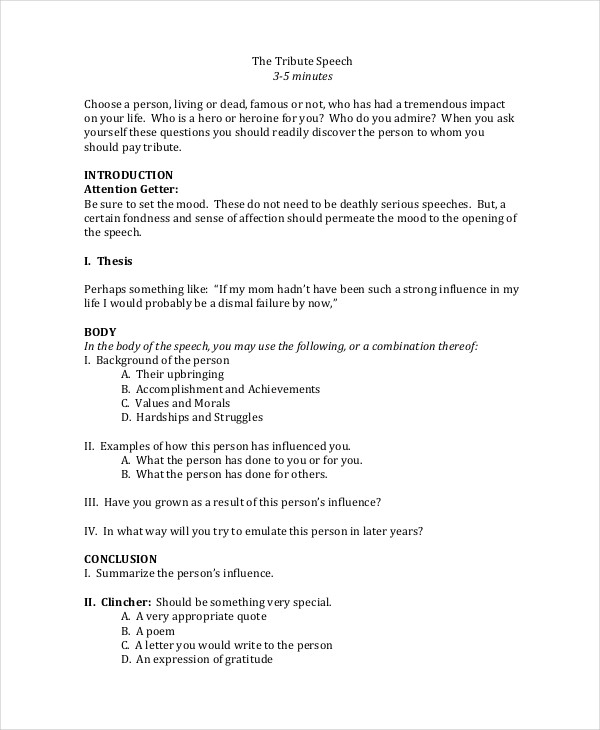Occasion Remarks
Posted : admin On 4/4/2022Closing remarks on the occasion of the International Women's Day. Location: Excellencies, Ladies and gentlemen, Colleagues, Friends. Before I begin, I should like to pass on sincere apologies from IFAD's President Nwanze who is unable to be with us today due to other commitments. President Nwanze wishes us well on this significant occasion.
- Free Speeches For All Occasions. Have you ever been asked to present wedding toasts, wedding readings, a best man speech, a bridal shower poem or even just a cute quote? We will give you free speeches and ideas. We will also include a list of best man duties and wedding favors. Happy, celebratory words – find them here!
- Press Statement Mike Pompeo Secretary of State Washington, DC May 15, 2018 On behalf of the United States Department of State, I offer best wishes to Muslims around the world for a peaceful and blessed Ramadan. For those observing this month, it is a time of reverence, generosity, and spiritual introspection. Ramadan is also a.
Occasion Remarks For Church
by
Chairman Christopher Cox
U.S. Securities and Exchange Commission
Washington, D.C.
February 22, 2007
It is my great pleasure to welcome you to the Securities and Exchange Commission's annual celebration of African American History Month. In addition to our employees here, at the Operations Center, and in the SEC's regional and district offices, we have guests in the audience from the Administrative Office of the United States Courts, and from two outstanding schools, Georgetown University and Catholic University. Thank you for joining us.
We're here to celebrate the vital role that African Americans have played in the development and progress of America throughout our history. Over 10% of the people in America identify themselves as African American -- and even at that, the contributions of African Americans far outstrip their numbers. Here at SEC, nearly 20% of our staff are African Americans. African Americans are leading not only this agency and all of our government, but they're showing us the way in every endeavor of social and commercial importance. Nationwide, more than a quarter of all African Americans work in management, the professions, and related occupations.
And when it comes to defending our country, there are more than 2.4 million African American veterans. In fact Michael Powell, our speaker today, is one of them. You will hear more about this when Commissioner Nazareth introduces him, but I want to take this opportunity to ask you to join me in a round of applause for his service to our country.
It was my privilege, as a member of the Telecommunications Subcommittee in the Congress, to work with Michael when he was Chairman of the Federal Communications Commission. He was a brilliant leader, a sound policy maker, a consensus builder, and above all, very generous with his time when it came to working with us on the Hill -- just as he is generously making himself available to be with us here today.
It's especially fitting that we are hosting guests from two of our leading universities today, because it gives me the opportunity to draw attention to the fact that over the past 15 years, increasing numbers of African Americans aren't just going to college but also entering postgraduate programs. Over one million African Americans hold advanced degrees, and there are more than 2.3 million African American college students right now. Not surprisingly, with all that brainpower at work, our economy is showing the effects. Today, revenues for businesses owned by African Americans total more than $89 billion -- which is up 24% from 1997.
But while these numbers are impressive, they don't convey the true quality of individual achievements. And that's what Black History Month is all about.
On February 12, 1926, American historian Carter G. Woodson established Black History Week to recall and celebrate the positive contributions to our nation made by people of African descent. For many years, we've set aside the second week of February for this celebration, coinciding with the birthday of abolitionist Frederick Douglass. In 1976, the week was expanded into Black History Month.
But even with a month-long celebration, there's barely enough time to cover so many important historical events and accomplishments and life stories. So Black History Month is really a reminder that this important part of our heritage belongs in the forefront of our consciousness 365 days a year.
In my case, I've got a constant reminder to keep the important lessons of Black History Month in focus all year long. In my office on the 10th floor, overlooking the Capitol dome, I have a telescope. (Sometimes I jokingly refer to this as my Legislative Affairs operation -- using the telescope, I can just read the memos on their desks.) But I don't have the telescope focused on the offices, but rather on the Statue of Freedom on top of the dome.
As many of you know, that beautiful statue was placed there in 1863, at the height of the Civil War. She stands on a globe encircled with our national motto, E Pluribus Unum: Out of Many, One. And she was cast in bronze by a former slave, Philip Reid, who along with other D.C. residents gained his freedom ahead of the Emancipation Proclamation by act of Congress, under the District of Columbia Emancipation Act of 1862. I can't think of a more fitting symbol of the physical, emotional, educational, commercial, intellectual, and spiritual contributions of African Americans to our nation and our society.
For our part, the SEC has long held special programs during African American History Week, and now African American History Month. And it's been our tradition to begin the program by singing the Negro National Anthem. So it's my honor now to introduce Geri Stewart from OGC, and Johnny Brooks from the EEO Office, who will lead us in 'Lift Every Voice and Sing.' I'll then introduce my fellow Commissioner, Annette Nazareth, who will introduce our guest speaker.

http://www.sec.gov/news/speech/2007/spch022307cc.htm
| Home Previous Page | Modified: 02/23/2007 |

Protocol
I am delighted to welcome you to this occasion –the celebration of the International Women’s Day. It is a day that calls to question the essence of life without justice. Justice for the part of humanity, the Female Gender, that has been described over time as ‘poor, pregnant and powerless’. This description is apt when one recalls the plight of women in conflict ridden parts of the world; who as victims of rape, they have high vulnerability to debilitating diseases, limited or no reproductive health rights, poor access to health care, bear the burden of care for legitimate and unwanted children among others. They are simply victims of violence, with attendant traumatic consequences.
Ladies and gentlemen, I invite you to imagine what happens to the girl-child that goes through these harsh experiences. Imagine that as a child, she becomes a mother. Imagine that she is denied parental care. Imagine that her access to education is truncated. Imagine that her life dreams and ambitions are shattered. Imagine her on the street, in the IDP camp or in captivity as a sex slave to her captors. We can go on and on.
Consider the plight of the African woman, in stable but deprived communities. Imagine that the African woman, with her little children, girls and boys have to wake up early and trek long distances to fetch water for household needs. Imagine that she has to fetch firewood from the forest to prepare meals for the household. Imagine that she has to return to the market arena, either as a petty trader, hawker or scavenger; to earn a little to contribute to the family economy. Imagine the hardship she goes through to send her child to school. Imagine the pains she goes through, as the plague of unemployment looms over her husband and educated children. The Gbagyi woman belongs here too.
But she has peculiar experiences. It is this woman that has borne the burden of the nation from Minna to Zungeru; from Jere to Kaduna; from Toto to Abuja since the formation of Nigeria. These places have geo-political relevance as seat of power either to the colonial or federal governments. The wood that she carries on her shoulders has now become her official complaint about balkanization and neglect. She is bewildered as successive governments have misapplied extant laws on land use, the federal character, resettlement, urban renewal to diminish her economic fortunes. It is this woman that lost her children to careless drivers on the palatial highways of Abuja as they returned home from school. She agonizes over the fact that she is told that in Abuja, her entire family does not have franchise for self-governance; she agonizes that there has been a longstanding conspiracy to block her access to means of production and national wealth. In her existential trauma, she cries out needs to be heard.


Occasion Remarks For A
GIPI remains highly indebted to Ms Della Ilenre for her sensitivity to these issues and utilizing the opportunity offered by the Centre for 21st Century Issues (C21st) to mobilize sponsorship for today’s event from the International Women’s Forum Peru. The case she made was for the Gbagyi Woman –the need to give her a voice. She was inspired by her late father, Pa Alfred Ilenre, may his soul rest in peace. GIPI met him briefly yet he left an indelible mark on us as a true nationalist. In addition, Della has a mentor, Titilope Akosa, Executive Director of C21st who has made invaluable contributions to the success of today’s event. We thank her most sincerely.
Occasion Remarks
Prof. Andrew Zamani